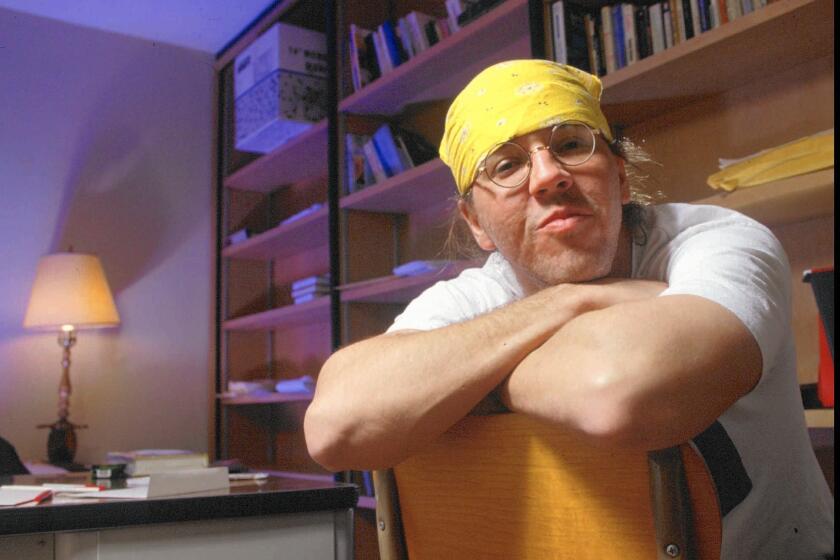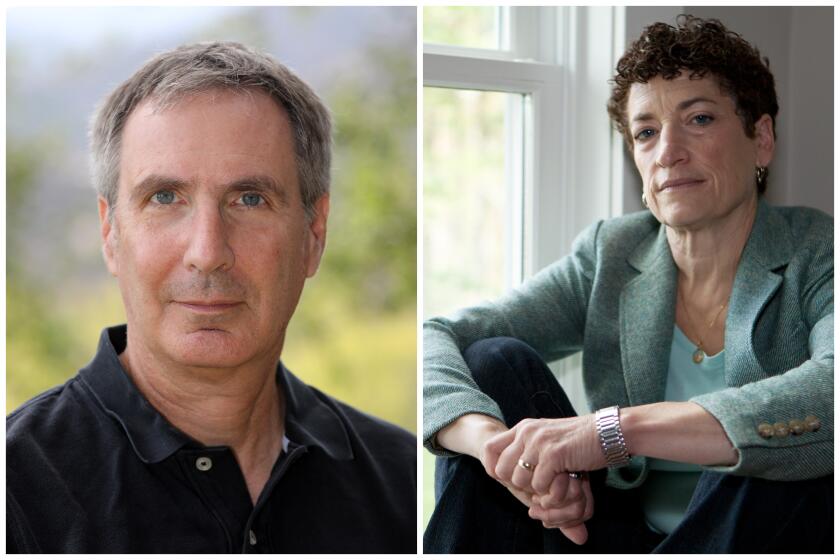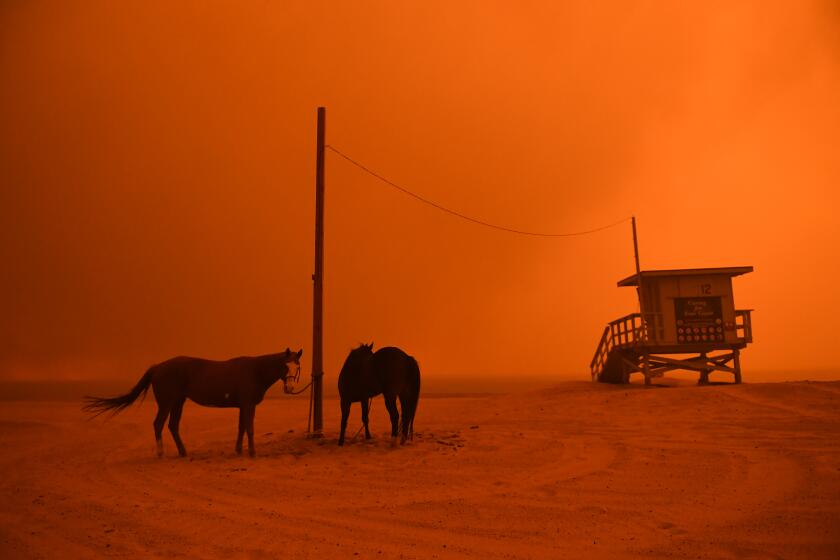We knew about climate change in the ’50s. Why an author tracked the history of denial
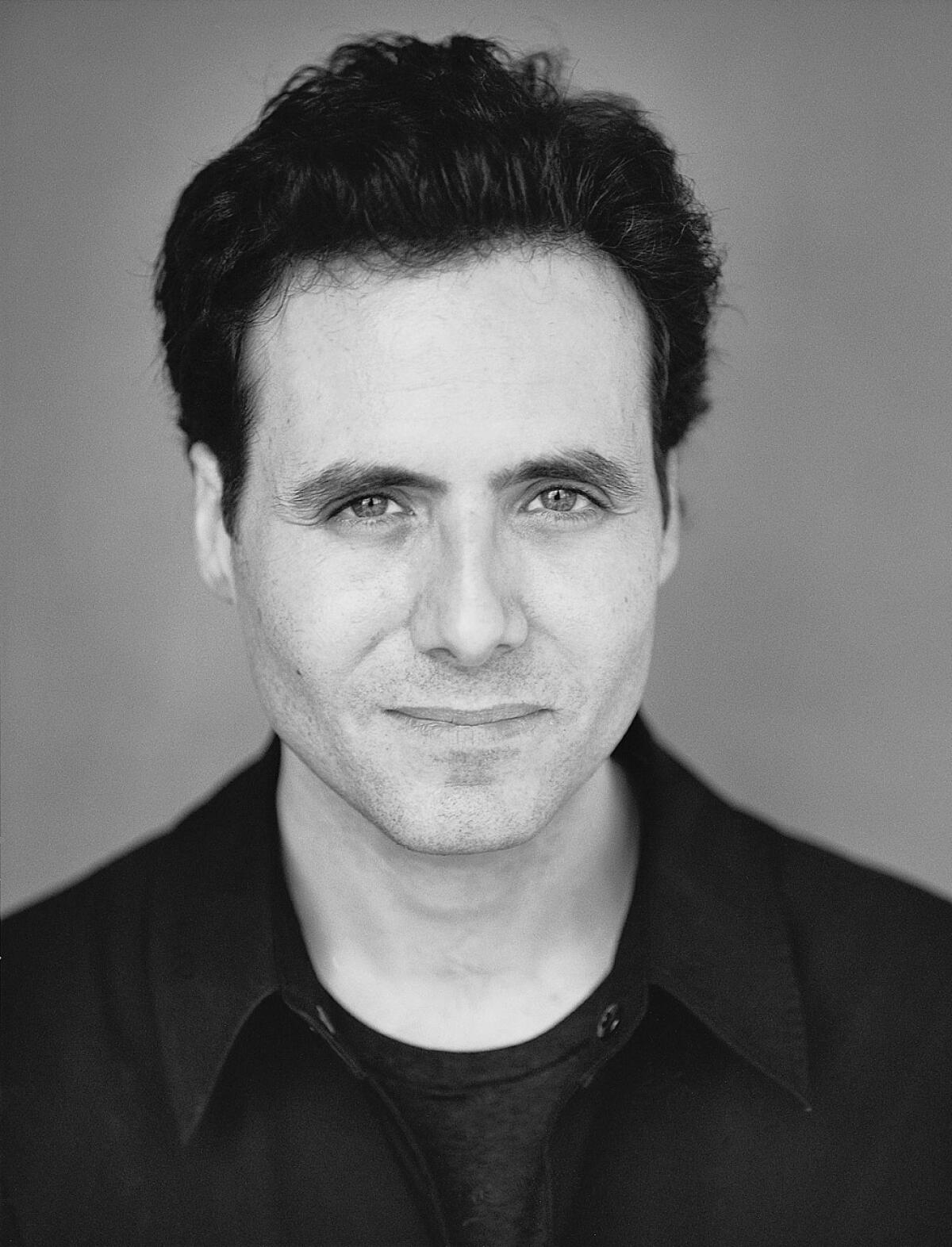
- Share via
On the Shelf
The Parrot and the Igloo: Climate and the Science of Denial
By David Lipsky
Norton: 496 pages, $33
If you buy books linked on our site, The Times may earn a commission from Bookshop.org, whose fees support independent bookstores.
A lunchtime interview with David Lipsky bounces around to cover everything from the mistakes in pirated 19th century editions of “Moby-Dick” to the finer details of Mr. Show’s 1998 sketch “The Audition.” This seems to fairly reflect the range of Lipsky’s preoccupations, as well as the span of his writing.
Lipsky, award-winning author of books about West Point and a road trip with David Foster Wallace, brings his wide-angle lens to bear on global warming in “The Parrot and The Igloo: Climate and the Science of Denial.”
The book covers everyone from Benjamin Franklin, who kick-started the Industrial Revolution, to the Rev. Sun Myung Moon, who benefited financially from questioning research on tobacco and global warming. It’s about not just the science of climate change but also the self-interested denier constantly working to undermine it — “more research is needed” is a central strategy — and inflicting long-term damage in the process. Lipsky strives to make the book as readable as possible, referencing the Beatles and “The Simpsons,” yet his deep research and outrage continually shine through.
This interview, at a restaurant near New York University, where he is a professor, has been edited for length and clarity.
Right after the new road movie “The End of the Tour” premiered at the Sundance Film Festival in January, a movie-industry friend texted me her thoughts.
You were working on a different book when you read about Roger Revelle’s 1956 research proving climate change and the work confirming it in the 1970s. You write, “Everyone had known. And nothing had been done.” So what will writing more about it accomplish?
A 1979 panel said, “We have no reason to doubt global warming will happen and no reason to think changes will be small.”
Had Reagan not become president, things would have been different. We’re going to have to make a start at some point, and if we had done it then, the economies of scale would have kicked in and we would have become used to things. People now seem comfortable driving electric cars, and that could have been happening 30 or 40 years ago.
But it can be a very dry story. I think if people really knew the story, they would react. This is why I wrote the book. But also, beyond any public service thing, I felt lucky to tell this great story.
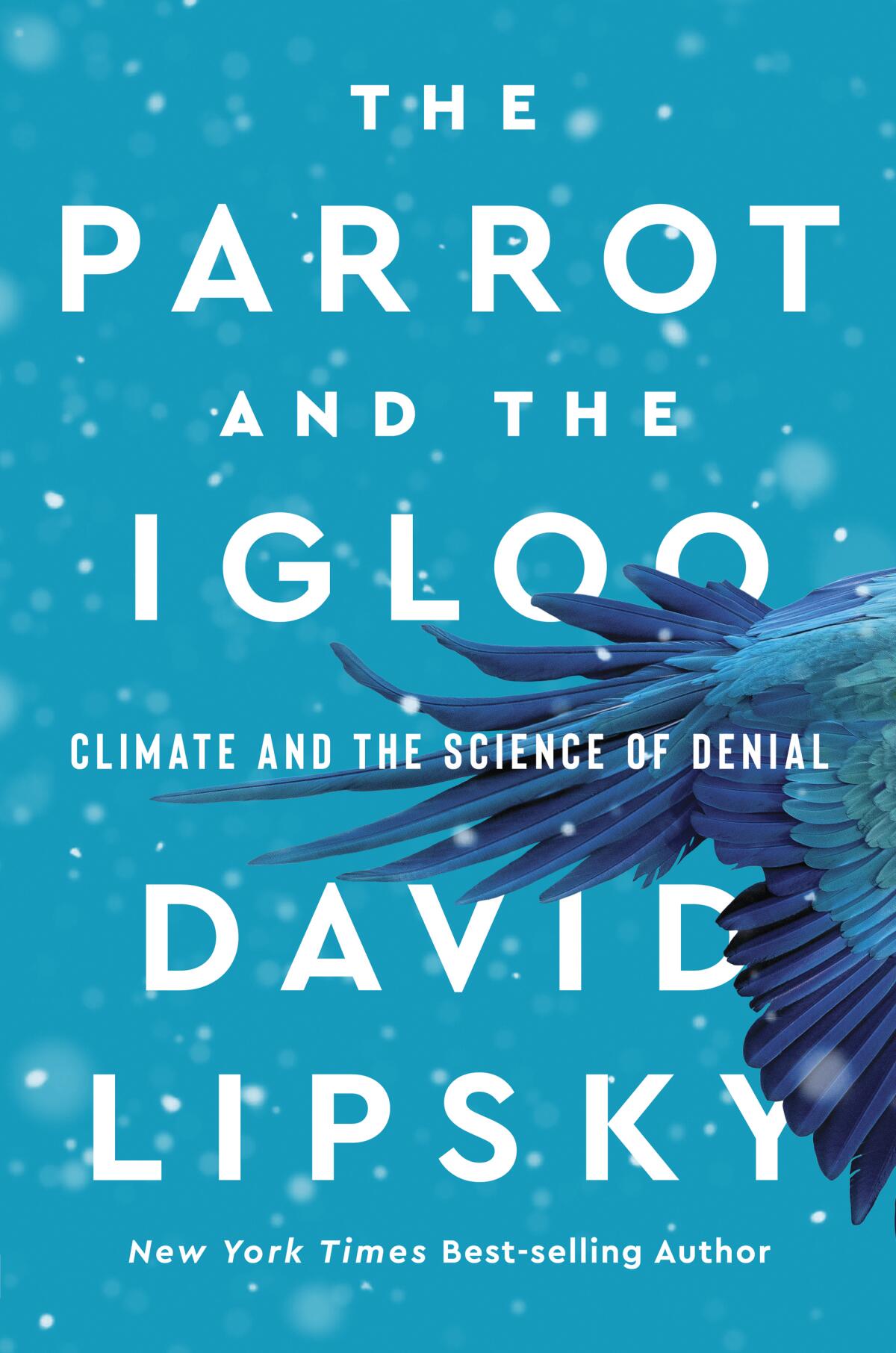
You write about “signal versus noise” and how the climate deniers successfully distract by creating noise.
There are only 25 professional climate deniers, according to one climate denier, but 25 people can frustrate the will of the world. That’s staggering.
So educated people somehow read the one scientist out of a thousand who doubts the evidence and believe him — even after he’s discredited — instead of the 999 others. How do you combat that?
Give them my book. I quote John Tyndall: “It is as fatal as it is cowardly to blink facts because they are not to our taste.”
Then they’d counter, “But my guy says…”
I don’t think they would. When you can show people that your good faith energy has been misused by people who simply want to make money with no concern for the consequences, they’d say, “Oh, I didn’t realize.”
If they then say, “Climate change is true but it’s not worth the money” — it’s still a giant change to get people in the door and acknowledge global warming is happening. Then we’re just negotiating over how much to spend on dealing with it.
Naomi Oreskes and Erik M. Conway, authors of ‘The Big Myth,’ discuss the history of anti-government thinking, Biden’s achievements and the Ohio train disaster.
This is a gloomy topic but it reads like you had fun researching and writing it. You write that Richard Nixon “embraced the environment in the manner of an older man buying his first Beatles album. Not to play the tracks, as an up-to-date signal to leave on the coffee table for guests.”
No one I know wants to read more about global warming, and people don’t recommend books about this to their friends because they’re not fun to read. I was very conscious of writing a book for readers that’s a great story. It’s like a Coen Brothers movie: We’re warned about something in 1956 and we keep saying, “It’s certainly going to happen,” but we never do anything. That’s a comedy.
Explain your title in shorthand.
It has been said that America has the most extreme adversarial culture. The minute you have an issue, it is binary and people are incredibly aggressive. We take the issue and instead of saying, “Here’s something we can solve,” it becomes, “Either it’ll be a tropical jungle with parrots or it’ll be an igloo.” That stops us from solving stuff. We get the correct answer, and we run it through the machinery of modern America and come up with the wrong answer.
Men who are not in supportive couples stop going to the doctor because there’s not someone saying, “You should get that looked at.” That’s men at their worst. The same is true here with every president back to Carter. Everybody had the same thought: Someone else will deal with it.
Lydia Millet, whose latest novel, “A Children’s Bible,” tackled climate change, reads new fiction on climate and argues against calling it a genre.
In 1979, politicians asked, “When will this all become evident?” And they’re told 40 years, so they say, “Get back to us in 39.” The book is about us as a people, the biggest version of us not going to the doctor.
Did Joe Biden take us to the doctor with his climate legislation? Scientists have estimated that his actions will cut U.S. greenhouse gas emissions in 2030 by 30 percent to 40 percent below 2005 levels. Would his re-election have a major impact?
People don’t appreciate that he has been a really effective president. He seems to understand what global warming is about, and he’s a professional politician who knows how to get legislation through. He did what no one else was able to do in 40 years.
More to Read
Toward a more sustainable California
Get Boiling Point, our newsletter exploring climate change, energy and the environment, and become part of the conversation — and the solution.
You may occasionally receive promotional content from the Los Angeles Times.
